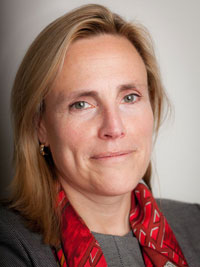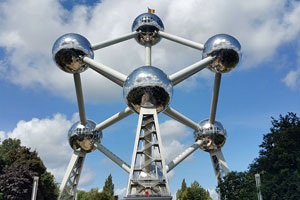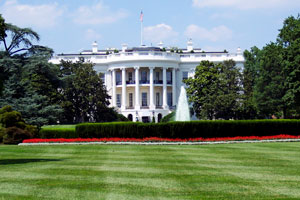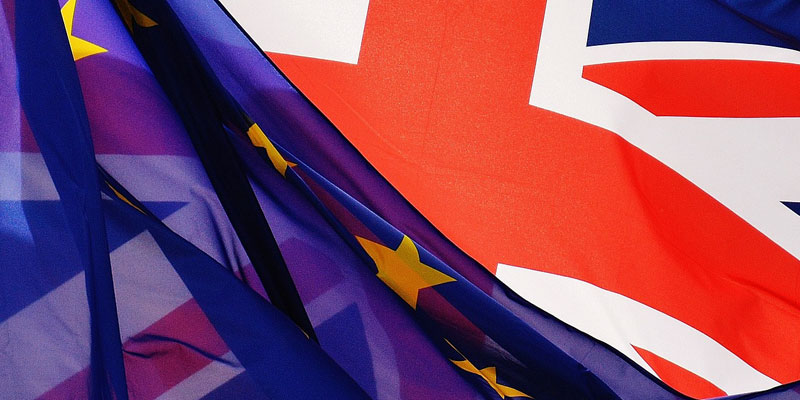Julia Harrison is senior managing director at FTI Consulting and is based in Brussels where she works in the firm’s Strategic Communications practice. A political communications specialist, Julia specialises in board-level advice and was previously European chief operating officer for an international consultancy. She has 30 years’ public affairs experience and has worked at the highest level across sectors and industries.

“…We are in such unparalleled times of change; whilst these can be frightening in many ways personally and the uncertainty is challenging to business commercially, these are also time of immense opportunity. I don’t have the crystal ball but we know historically these periods also hold so much potential…”
Julia, please can you tell us about your career to date and what made you want to work in consultancy and political communications?
I’ve been involved in politics, policy and business in one way or another all my working life. I’ve been based in Brussels since 1989, having done stints in Washington and London before that.
I love building things, be it a campaign or a company and consultancy allows you the freedom and the variety to do that.
When I was working in Washington in the mid ‘80s you couldn’t really miss political consultants and I wondered if a similar type of advisory work existed in Europe. You had to fight your way in at that time and I remember working in Liberty’s silk department until one of the few consultancies in London could be persuaded to give me a job which paid the princely sum of £2k per year. I think as a result I have always valued enormously the role and responsibility afforded as a consultant.
What does your role involve on a day to day basis?
The team that I work with in Brussels and beyond is quite amazing; the opportunity to work closely with extremely smart people, including our clients and those we need to talk to, keeps me totally motivated on a daily basis.

Many of our clients are not based in Brussels so I travel quite a bit. I sometimes feel I know the Eurostar terminal better than my living room… But mostly my job is to help the team fly and bring experience to bear on issues that our clients are facing. A lot of my time is spent supporting clients with advice and counsel – helping them deal with a variety of issues but also see and seize the opportunities.
We are in such unparalleled times of change; whilst these can be frightening in many ways personally and the uncertainty is challenging to business commercially, these are also time of immense opportunity. I don’t have the crystal ball but we know historically these periods also hold so much potential. We have to find ways to use our policy and governance to unlock that potential responsibly in Europe rather than constantly to circumscribe and protect against others.
There’s so much going on in the EU at the moment, from Brexit, migration, to a focus on economic growth, that it’s vital to keep ears close to the ground and talk to as many people as possible to understand what’s really going on. Brussels is a great town for making those contacts.
Finally, I’ve also got to be focused on growing our own business. That means finding new opportunities to grow and develop with our clients, and also making sure that we keep and attract the best new people into our team.
In the current economic climate, what are the greatest challenges faced by corporates in the way they communicate with their stakeholders?
Globalisation has to some extent brought to the surface tension between citizens on the one hand and their political leaders and the business community on the other. Technological change, for example, is creating massive opportunities, new business models. But it’s also creating challenges for communities and individuals.
The biggest challenge is how to break out of entrenched positions and find creative and collaborative ways to address the underlying issues. How can business turn “social purpose” into a reality and demonstrate that thriving commercially with a new business model can be beneficial for society? This isn’t only about communicating: it’s also about showing and delivering on that new reality.
Guiding non-expert policy makers and politicians, and in fact all of the rest of us stakeholders, through often very complex issues and implications is a massive challenge for corporates. So is listening just as much as communicating to understand the other perspectives and sometimes take up responsibility in uncomfortable areas.
How is the role of women in politics changing in Europe and beyond?
We have some progress, we have greater debate and we have greater visibility around the issues caused by lack of diversity – gender or otherwise. This is all to the good. However, progress towards balanced political representation is slow and there is still much to be achieved.

In Western Democracies, we need to widen our view of how politics needs to represent women better around the world. Secondly, we need to challenge the Millennial and Post-Millennial generation. It is both wonderful (how far we have come) and frightening (how far we might slip) how an international, travelled and educated as never before generation of young women can either not use their vote or be insouciant about its value and what is needed to protect it.
My hope for politics is that activism amongst the young of all genders, ethnicity, creed and sexuality returns and increases diversity and improves outcomes.
You’re a regular attendee of the annual World Economic Forum meeting in Davos. How is the representation of women changing at the event, if at all?
I think there has been a push to increase the number of women delegates through gender initiatives, membership and delegate mechanisms etc., but much remains to be done and of course it’s not just in Davos.

Until not just our political, but also corporate, institutional and other organisational representation is more balanced and diverse we simply will not be taking advantage of the leadership talent available, nor according to many studies achieving the best results in whichever field which we know diversified groups achieve.
Initiatives such as the UK’s Hampton-Alexander Review are seeking to address gender balance in the highest levels of corporates. How can strategic communications be leveraged to support?
There are a number of levels where communications can help. Firstly, as a profession there are so many women, and at senior level, who can put their shoulder to this wheel to support and carry the message in a balanced and non-patronising way. Metrics show that professional services firms face the same challenges as any other business around the percentages of women reducing the further up the pyramid you look. Yet we have unique opportunities to organise ourselves flexibly and with agility to help redress that.
Secondly, as a piece of the picture we can tell the stories and show successful women role models; but we can go beyond that to help circulate knowledge about best practices, what people have tried, what worked and what didn’t; and also take away the stigma around the discussion. This is not about corporates helping women to succeed. This is about women having the opportunity to help corporates succeed.
What is your advice to women who are seeking board level experience?
Know exactly what sort of board you want: FTSE, start up, charity. Be practical, network, ask. If you are from a non-traditional background (i.e. you are not a lawyer or an accountant) make clear what you can add to the board’s capabilities. Hit that right balance in the way you project yourself between competence, collegiality and yet not being a push over. Be expert and be thoughtful; be evidenced. Think very carefully about creating a path of relevant experience. Don’t give up.
What is coming up next for you and FTI?

When I get back we will take a day as the Brussels team to think about what we need to do this next year, what our clients will face with all the political upheaval, many European elections, Brexit etc. Getting that time to think and plan is one of the hardest challenges at work today for anyone.
Then in February I will have a great opportunity to spend time working closely with our senior leaders from around the world. One of the unique things about public affairs / political consulting at FTI is that we operate next to colleagues from our economics, corporate finance, technology and forensic litigation practices.
Whilst this is great in terms of what we can provide for clients – economic modelling for our M&A [merger and acquisition] work; political intelligence and risk assessment for market entry; compliance, governance and tax alongside our political and regulatory work; it is also inspiring and quite invigorating at a personal level – I will be spending the next few weeks doing my homework!
https://twitter.com/FTIConsulting
https://twitter.com/jharrisoneu
https://www.facebook.com/FTIConsultingInc
https://www.linkedin.com/company/fti-consulting
Davos image credit: By MadGeographer (Various images from Wikimedia Commons, see below.) [CC BY-SA 3.0 (http://creativecommons.org/licenses/by-sa/3.0) or GFDL (http://www.gnu.org/copyleft/fdl.html)], via Wikimedia Commons





